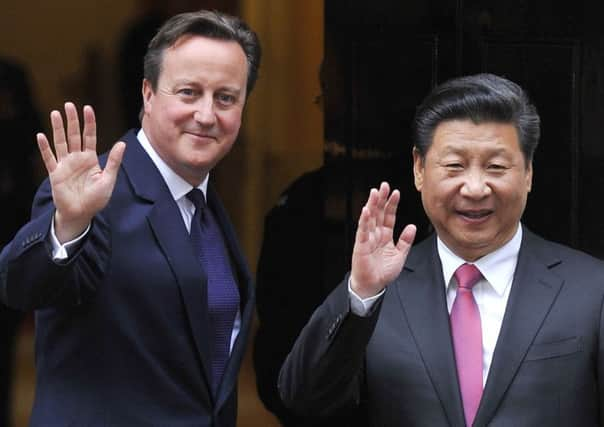It's a case of '˜when' not '˜if' Chinese investors move into White Rose clubs


But with no let-up in the insatiable desire of China – the world’s second biggest economy – in their quest to become a footballing powerhouse, expect financial muscle to continue to be flexed in 2017, with the potential of some White Rose clubs unlikely to have passed investors by.
That’s the verdict of professor Simon Chadwick, an expert on China’s football strategy and investment in football and a sports management ‘guru.’
Advertisement
Hide AdAdvertisement
Hide AdHull City and Leeds United have both been linked with Chinese investment, with Chadwick fully expecting further high-profile acquisitions of British clubs by Chinese purchasers in the New Year with it being a case of when, not if.
Chadwick said: “There are now two groups.
“There are Chinese investors who have specifically targeted clubs. Some clubs are currently in active negotiations and at least one is a fairly high-profile Premier League club.
“I would expect that to be completed, if not before the end of the season, then very soon after. I would envisage there being one or two more clubs (being bought) before the end of the season and certainly one or two more after the end of the season. Then, there is a second group who are Chinese investors with money to spend who are effectively being touted around by intermediaries.
“There are three or four intermediaries and some fairly high-profile individuals in among those. Essentially, they are trying to broker deals between willing buyers and sellers.”
Advertisement
Hide AdAdvertisement
Hide AdOn the previous Chinese links at Leeds, he added: “I am aware that one particular intermediary has taken Chinese investors to look at Leeds. That does not mean a sale is imminent.
“Leeds has been on the radar of some Chinese investors. It has history and heritage and commercially it has potential and has a high-density conurbation in terms of being to attract fans. There is also development potential, which is part of Leeds’s appeal. A lot of Premier League coastal clubs are also attracting a lot of attention and there are others apart from Hull City.”
China’s desire to be serious players in the world game is self-evident. President Xi Jinping’s – an avid soccer fan – expressions of his desire for the country to become a “world football superpower” by winning the World Cup by 2050 is a very clear aim.
By 2025, China aims to have a domestic sports industry worth $850bn (£564bn), with Aston Villa, Wolves, West Bromwich and Birmingham City all having gone into Chinese ownership in 2016, while Manchester City, Atlético Madrid and Lyon are among clubs who have significant Chinese stakes.
Advertisement
Hide AdAdvertisement
Hide AdInter Milan, Espanyol, Nice and Slavia Prague have also either been bought or are now controlled by Chinese investors. The net will be cast further.
Chadwick added: “The president wants to win the World Cup by 2050 and get 20,000 new pitches by 2017. He wants China to be one of the leading football nations inside 30 years. They are investing from the top down and bottom up.
“It is not a case of Chinese president getting the guys in the room and saying: ‘Right, lads, go and buy some football clubs’.
“It is more a case of when the Chinese government makes a decree, it makes good sense politically for businesses to go out and be seen to support state policy. If they can please the president while doing good business, it is good for them and good for China and the government. It also enables them to conduct their business more efficiently in China.
Advertisement
Hide AdAdvertisement
Hide Ad“People talk about soft power and it is a great example of a country using football as a way of exerting that. Qatar is doing a similar thing, while for Britain, the Premier League is a great way or exerting a soft-power influence around the world.”